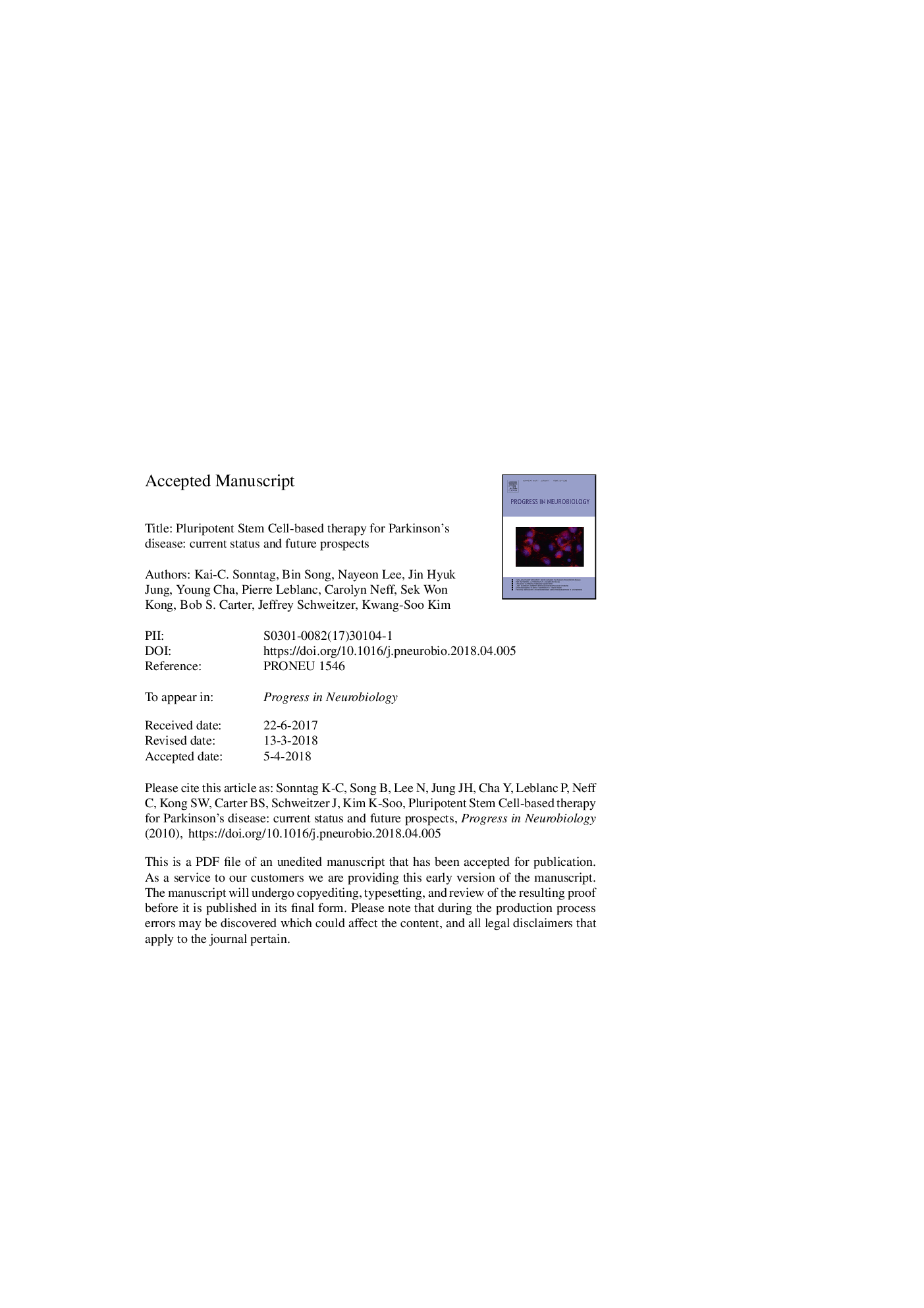| Article ID | Journal | Published Year | Pages | File Type |
|---|---|---|---|---|
| 8842163 | Progress in Neurobiology | 2018 | 87 Pages |
Abstract
Parkinson's disease (PD) is one of the most common neurodegenerative disorders, which affects about 0.3% of the general population. As the population in the developed world ages, this creates an escalating burden on society both in economic terms and in quality of life for these patients and for the families that support them. Although currently available pharmacological or surgical treatments may significantly improve the quality of life of many patients with PD, these are symptomatic treatments that do not slow or stop the progressive course of the disease. Because motor impairments in PD largely result from loss of midbrain dopamine neurons in the substantia nigra pars compacta, PD has long been considered to be one of the most promising target diseases for cell-based therapy. Indeed, numerous clinical and preclinical studies using fetal cell transplantation have provided proof of concept that cell replacement therapy may be a viable therapeutic approach for PD. However, the use of human fetal cells as a standardized therapeutic regimen has been fraught with fundamental ethical, practical, and clinical issues, prompting scientists to explore alternative cell sources. Based on groundbreaking establishments of human embryonic stem cells and induced pluripotent stem cells, these human pluripotent stem cells have been the subject of extensive research, leading to tremendous advancement in our understanding of these novel classes of stem cells and promising great potential for regenerative medicine. In this review, we discuss the prospects and challenges of human pluripotent stem cell-based cell therapy for PD.
Keywords
MDAhiPSCsIPSCsSNVsCNVsSCNThESCsPSCsFVMINSNPCsSNpcSomatic cell nuclear transferParkinson’s diseasesubstantia nigra pars compactaembryoid bodyShhDopaminePCsHuman induced pluripotent stem cellshuman embryonic stem cellsInduced pluripotent stem cellsPluripotent stem cellsInduced pluripotent stem cellprogenitor cellsNeural progenitor cellssonic hedgehogInduced NeuronsTransplantation
Related Topics
Life Sciences
Neuroscience
Neuroscience (General)
Authors
Kai-C. Sonntag, Bin Song, Nayeon Lee, Jin Hyuk Jung, Young Cha, Pierre Leblanc, Carolyn Neff, Sek Won Kong, Bob S. Carter, Jeffrey Schweitzer, Kwang-Soo Kim,
